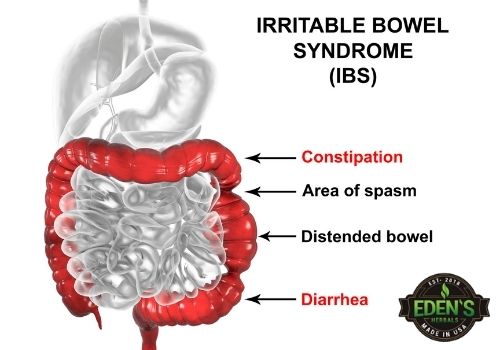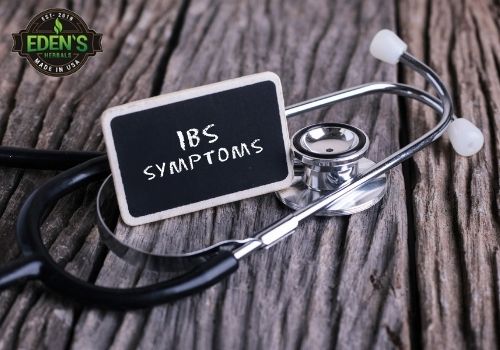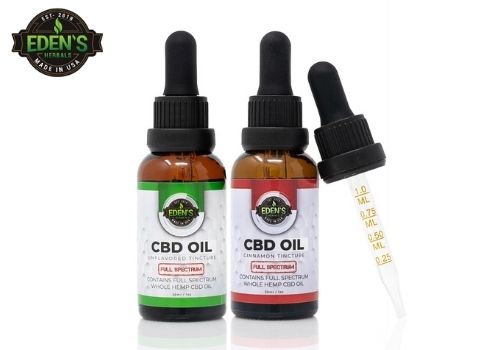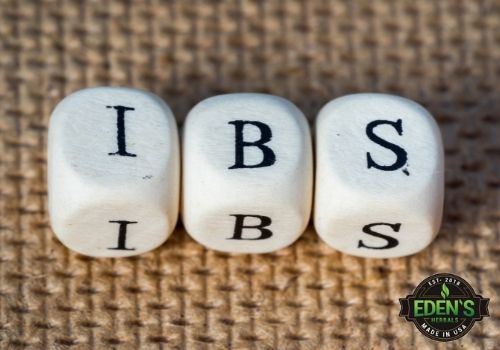 If the advertising and the hype are to be believed, then CBD can help a wide array ofillnesses and problems. To be clear, the evidence on CBD is still merging. Yet, research has shown potential for the relief of gastrointestinal disorders.
If the advertising and the hype are to be believed, then CBD can help a wide array ofillnesses and problems. To be clear, the evidence on CBD is still merging. Yet, research has shown potential for the relief of gastrointestinal disorders.
At the moment, there is only one FDA-authorized CBD-based prescription drug. That drug, Epididolex, is used in the treatment of rare seizure disorders.
The job of any CBD vendor must be to present scientifically accurate information. This is why you shouldn't ever hear any organization making definitive medical claims about the ability of CBD to cure illnesses.
An accurate scientific read of the current research does make it clear: There is evidence supporting the idea that CBD may help with many illnesses and common sources of discomfort. One such example might be IBS or Irritable Bowel Syndrome.
What is IBS?
IBS is a stomach disorder. Associated with stomach pain and digestive dysfunction, including upset stomach, diarrhea, nausea, or constipation. Depending on the case, individuals with IBS can have a series of symptoms that range from mild discomfort to nearly paralyzing.
This is not a small disorder, either: 25-45 million people have IBS.
 Treatment of IBS typically addresses the symptoms. It includes medication, exercise, stress-relief techniques, and dietary changes. Unfortunately, at the moment, there is no cure for IBS. But, CBD has emerged as a potential way of treating IBS.
Treatment of IBS typically addresses the symptoms. It includes medication, exercise, stress-relief techniques, and dietary changes. Unfortunately, at the moment, there is no cure for IBS. But, CBD has emerged as a potential way of treating IBS.
How could CBD help with IBS?
CBD's positive benefits are tied to its ability to influence the function of your body's ECS. Among other components, your Endocannabinoid System contains cannabinoid receptors. These receptors are found throughout your body. Your body will produce cannabinoids directly to these receptors, thus causing an impact on your body.
Studies have found that this binding may produce a series of positive effects, including mood improvement, better sleep, reduced pain, reduced anxiety, and more.
This could explain how CBD could potentially help reduce IBS. CBD has been noted to impact the method in which your body's cannabinoids bind with your body's cannabinoid receptors.
As such, this may reduce the pain that your IBS causes. IBS, stress, and anxiety are also heavily correlated, and one of CBD's benefits may be the ability to reduce anxiety and stress. If true, this could have a secondary benefit in that reducing anxiety and stress may also reduce IBS symptoms.
What does research show on CBD and IBS?
 As time goes on and more research is conducted into CBD and its impacts on various illnesses, more and more information is becoming available about just how CBD might help reduce pain and impact specific diseases.
As time goes on and more research is conducted into CBD and its impacts on various illnesses, more and more information is becoming available about just how CBD might help reduce pain and impact specific diseases.
This is certainly the case with IBS. A recent paper, conducted in 2020, examined the available research that has been conducted on the relationship between IBS and CBD. The paper noted the various ways CBD may be able to improve the suffering of people who had IBS.
The paper also examined available information and found that CBD may be capable of helping individuals who had IBS. As always with CBD-related papers, the paper was quick to note that further research was needed before more definitive conclusions could be determined.
IBS is often caused by an inflammation of the bowels and other parts of the stomach. A variety of papers have found that CBD has anti-inflammatory properties.
This seems to be the case for how CBD works on various organs and may be responsible for CBD's benefits when it comes to pain relief and skin care. If CBD is truly capable of reducing inflammation, it follows that it may be able to help reduce certain kinds of stomach pain - including IBS.
This helps to explain why many medical organizations and websites have written about the potential relationship between IBS and CBD.
However, even if one assumes that CBD can help reduce the pain and discomfort caused by IBS, many questions remain to be answered. These include:
- What is a therapeutic dose of CBD? How much CBD does someone have to take - and for how long - to see a benefit?
- What type of CBD works best, Full or Broad Spectrum?
- Does the manner in which one ingests CBD matter?
- Are there any long-term, specific risks to individuals who want to take CBD for IBS?
Potential next steps
 The most important thing you can do before starting CBD is speak with your doctor. This is the case for many reasons: Your doctor may have specific advice or suggestion about what type of CBD to take and what you should avoid.
The most important thing you can do before starting CBD is speak with your doctor. This is the case for many reasons: Your doctor may have specific advice or suggestion about what type of CBD to take and what you should avoid.
They will also know what drugs you are on and may advise you against taking CBD, as there are some drug interaction issues when it comes to CBD.
Depending on the specifics of your stomach condition, you may want to avoid taking CBD via an edible. Doing so may aggravate your already existing condition.
Indeed, more so than for most people who take CBD, you will want to make sure you have a thorough understanding of what is in any of the CBD that you take.
This helps to reiterate another point about CBD: Only take CBD with a Certificate of Analysis available for you. Such a Certificate will lay out exactly what is in the CBD, as noted by a third-party, independent lab test.
This is particularly critical, given that the Food and Drug Administration has yet to announce formal labeling regulations about what is and what isn't considered CBD.
When you try CBD for the first time, start slow, and make sure you are in a position to potentially address any common negative side effects. You should know that an upset stomach is one of the more common side effects felt by CBD users.
 However, most people do not feel these effects, and those that do usually find them mild, tolerable, and temporary.
However, most people do not feel these effects, and those that do usually find them mild, tolerable, and temporary.
Finding the right CBD and dose can be difficult for the first-time user, try finding CBD sites like Eden's Herbals who have a live support team to answer questions you may have before you purchase! There are many options to choose from when it comes to CBD products. From oils and gummies to topicals and isolates, the options can be overwhelming!
For best results start with a CBD oil or gummy and take the lowest recommended dose for beginners, this is usually between 20-40mg, from there you can adjust the amount needed easily and effectively.
Final Thoughts
CBD has been shown to help relieve many symptoms caused by GI disorders, by adding a CBD oil or gummy to your daily regimen you can be on your way to long-lasting relief!
If you want to learn more about CBD and IBS, contact Eden's Herbals at support@edensherbals.com today!
*These statements have not been evaluated or approved by the Food and Drug Administration and are not intended to diagnose, treat or cure any illness. Medical advice should be taken from a medical professional.


